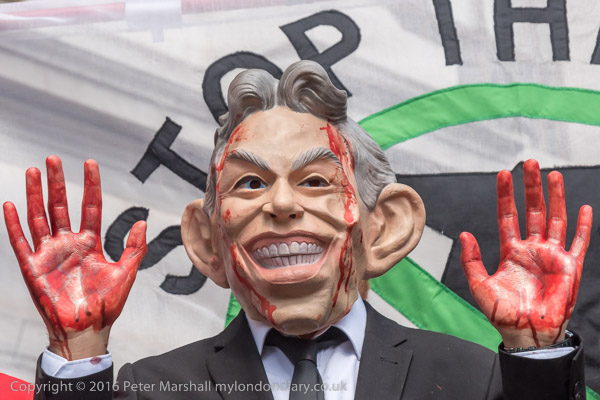
Labour scraped in at Batley and Spen by a few hundred votes, which was enough to take the pressure of calls for a replacement for Keir Starmer off the boil for at least a few months. And for the media to call upon some of the more grisly figures from the Labour past to come on and repeat their vilification of Jeremy Corbyn, and call for a return to those policies which had made Labour – New Labour – unelectable.
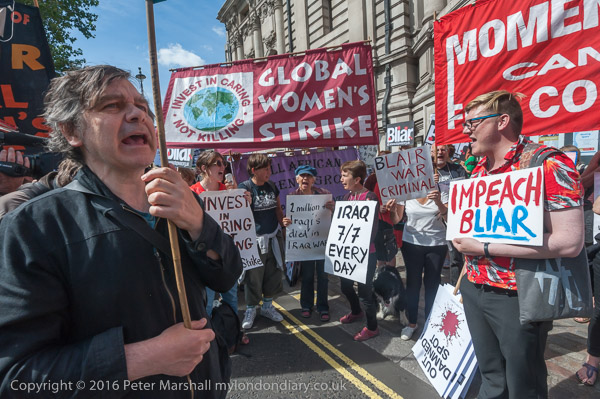
It had started with a great burst of support and enthusiasm in May 1997, when we really believed that ‘Things Can Only Get Better‘, but soon the disillusion set in. One of the major early problems came with PFI, launched by John Major in 1992, but taken up and expanded greatly under New Labour. Private companies were contracted to build and manage major public projects, enabling some very flashy announcements but failing to say we would be paying through the nose for them for many, many years – and in many cases for another 20 years or more from now.
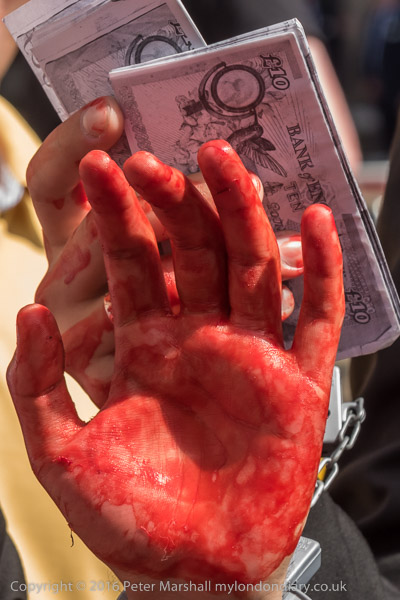
It essentially privatised many public projects, with often poor negotiating skills by civil servants unschooled in such matters resulting in excessive profits for the companies involved. There were many critics of PFI at the time, and in 2011 a critical Treasury report. In 2018 then Chancellor Philip Hammond stopped any new PFI projects.
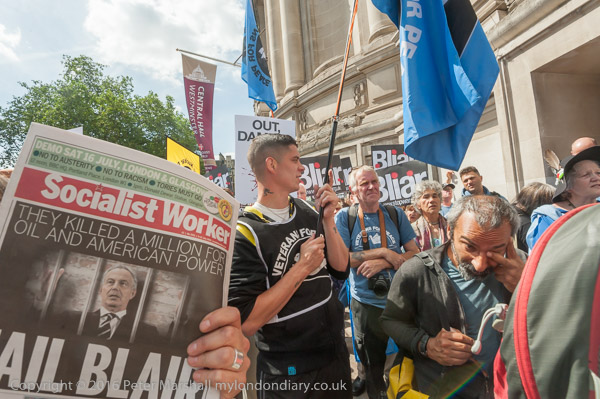
PFI has been particularly disastrous for the NHS, causing huge financial problems and leading to the cutting down an closures of hospitals. The 127 PFI schemes had a total repayment cost (according to Wikipedia) of £2.1m in 2017 and continuing to rise until 2029. In 2012 seven NHS Trusts had to be given emergency financial support as even with cuts they were unable to meet their PFI repayments.
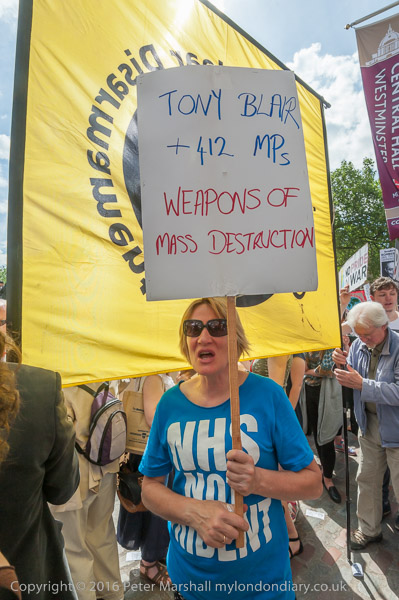
But, as the recent death of Donald Rumsfield reminded us, the most clear public failure of New Labour was to support what was largely his personal vendetta in the disastrous invasion of Iraq. Richard Wolffe, writing in he Guardian headlined his article ‘Rumsfeld’s much-vaunted ‘courage’ was a smokescreen for lies, crime and death‘ – and Blair colluded whole-heartedly in the deception, with the ‘dodgy dossier’ and various other statements and decisions. His was a special relationship with Bush most politely described as brown-nosing.
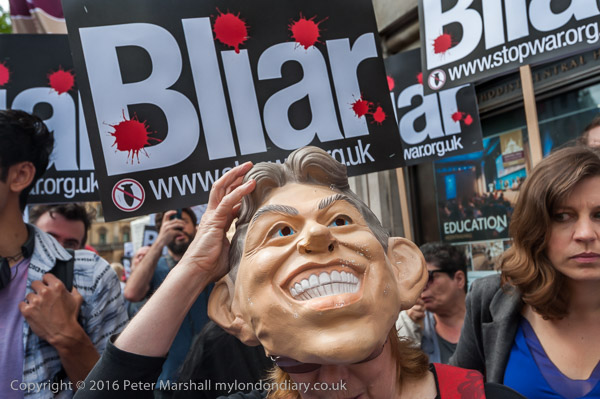
This of course is Britain, so instead of taking action we eventually had an inquiry, with Chilcot taking over seven years to allow the long grass to grow. Set up by Gordon Brown in 2009, six years after the invasion, it produced its report on 6 July 2016, when the protest here took place. Wikipedia quotes Richard Norton-Taylor of The Guardian as describing it as “an unprecedented, devastating indictment of how a prime minister was allowed to make decisions by discarding all pretence at cabinet government, subverting the intelligence agencies, and making exaggerated claims about threats to Britain’s national security”.
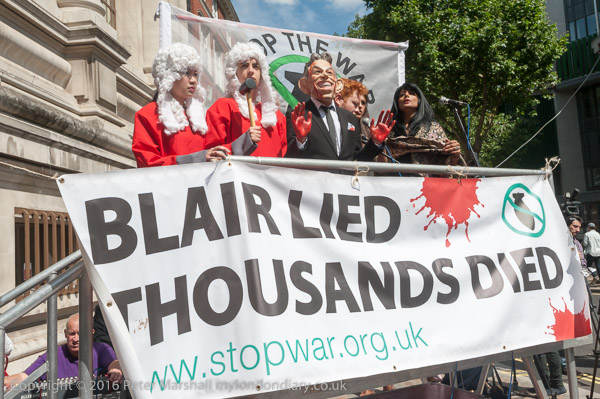
Clearly Blair was a war criminal. But of course no legal action followed – and that war criminal and proven liar continues to be invited to give his opinions in the media – and there are even those who suggest he should be brought back to lead the Labour Party. Financially he has done well out of his time as Prime Minister – and probably even better from his property investments, with an estimated net worth according to some of £100m. But as the placards say, ‘Blair lied, Millions Died’ and if there was any justice he should have gone to jail.
More at Blair lied, Millions Died – Chilcot
All photographs on this and my other sites, unless otherwise stated, are taken by and copyright of Peter Marshall, and are available for reproduction or can be bought as prints.